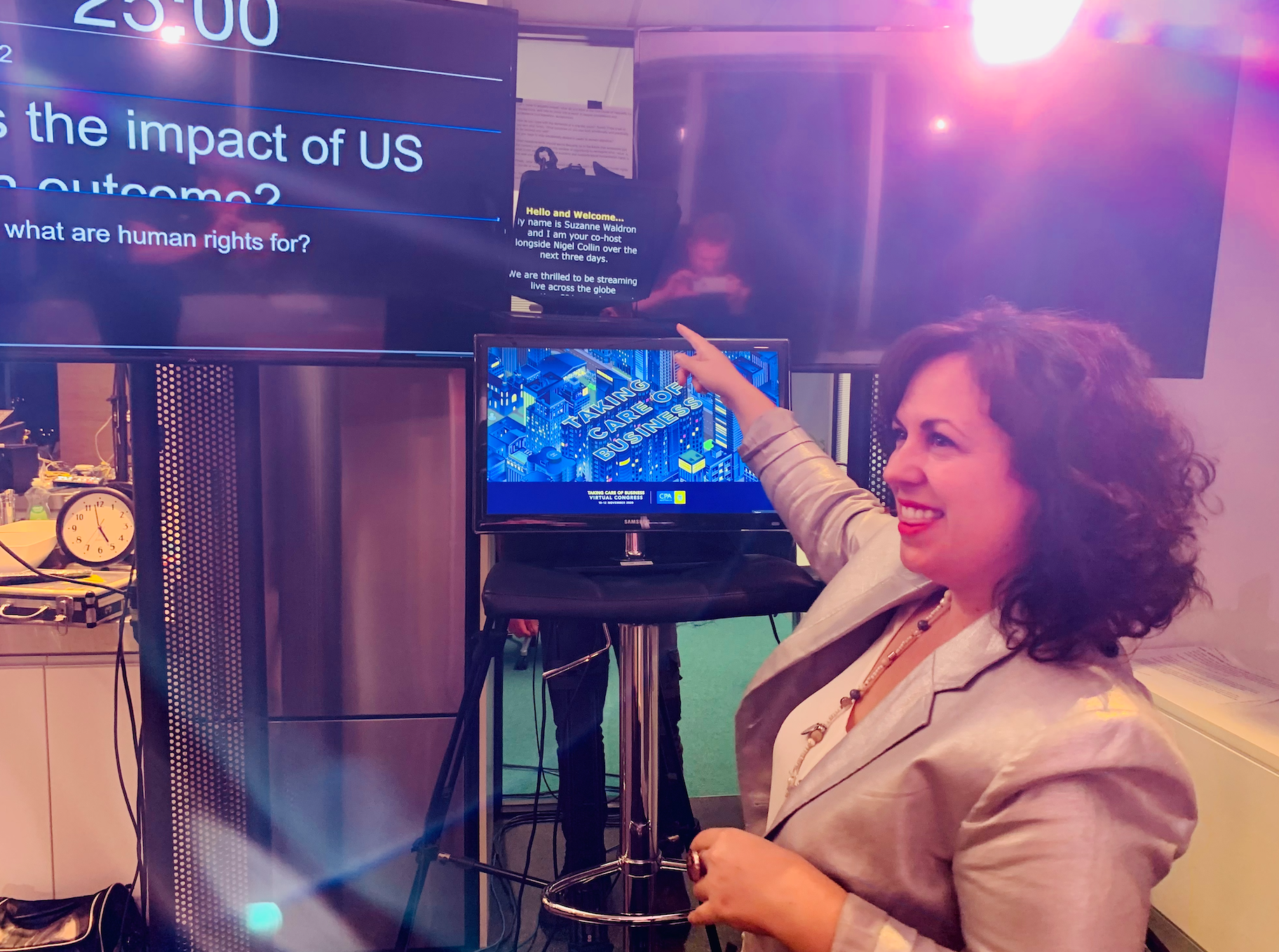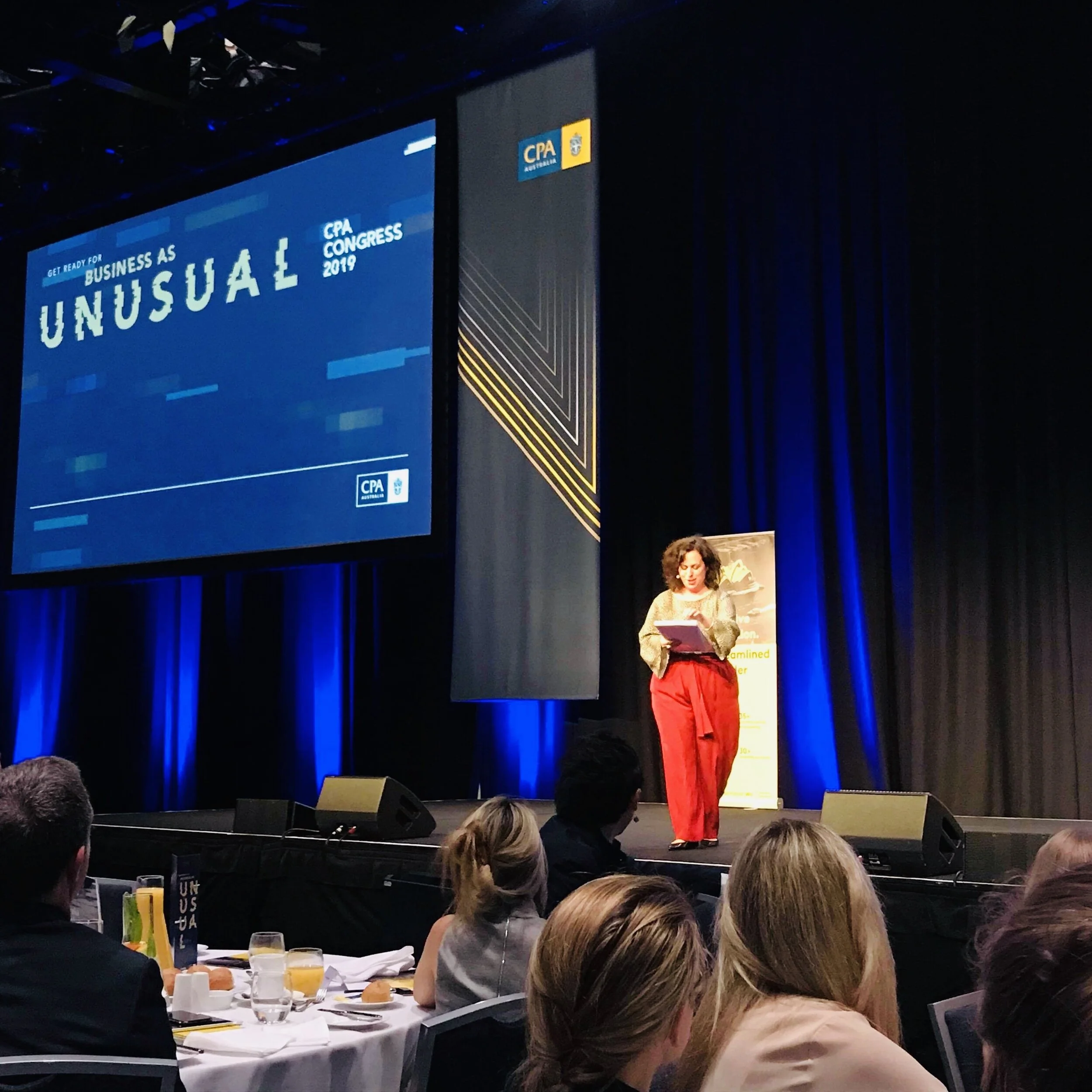The blend of behaviouralist and curator is unique. It lends well to understanding humanity and linking event content with current emerging issues.
Suzanne’s skillset expands event experiences beyond the typical. She’s full of keen intellect, electric energy and insightful curiosity.
Enhancing both the audience and organiser’s experience of the event with every interaction, her superpower is one of creating connection – helping relate differently to forgotten knowledge, investigating new thoughts, connecting with other people and the content in the event. She creates a container that holds the audience to be alert, alive and enquire which invites them to suspend their judgement and be active in their experience - together.
How I interview



Many people think I am a journalist, and I relish the fact I come from a humanistic background. As a crisis counsellor, behaviouralist and curator (my masters degree research explored prosocial leadership in action), I’ve trained for more than 20 years to help people make meaning of the life inside and around them. Inside an interview setting, it’s a privilege to delve intimately into what makes a person think, feel and act in the world. To get the best from this, I research with my head but ask questions from my heart. This helps the conversation get to the heart of what matters.
Because I’m obsessed with philosophy, economics and relationships, my operating frame is one of how to apply systems thinking, and human genius to the way we live and work. I’m not a person who exposes, rather uncovers truths and insight that provides place for consideration over judgement. Indeed, my conversations aim to elicit hope and possibility for all involved with a healthy dose of ‘what can we do about it’?
Too much of today’s world is fixated on the certainty of picking a side. This limited aspect creates division and a rush to settling on beliefs for fear of the discomfort in not knowing. I believe this suffocates our imagination, intellect and curiosity which can lead to apathy. Passiveness is not a desired state when the world needs increased civic responsibility and ethical, coherent decision making that lead to a fair and just experience for all in our community. If I could choose future skills that need to be developed they would be critical reasoning (how to think better) and relating to self and others.
So, when I am in a deep conversation with the person I am interviewing, I am keen to ensure the conversation spans societal, political, emotional and environmental factors and to reach into what is not being said where appropriate. Unearthing wisdom, insights and encouraging the audience to think differently and explore their own points of view by suspending judgement for a moment, and to consider the content they are experiencing through the thought leader.
At the end of Human Rights Lawyer, Amal Clooney’s interview, she said “your questions are very thought provoking, I’m going to go away and think more about them.”
““Suzanne brings a refreshing approach to panel moderation and interviewing that is both inviting and enjoyable. Her warmth keeps the speakers comfortable and eager to share their insights. Her curiosity makes the topic in the discussion a worthwhile experience for the audience. Suzanne is highly skilled at making the conversation more about the participants and less about herself. This makes for an enjoyable and enlightening experience for either virtual platform or in-person events.””
Showcase: Interviewer for CPA 2020 Global Congress
40 Countries, 3 days, more than 8000 delegates
Amal Clooney - Human Rights Lawyer (interview)
Dr Susan David - Harvard Psychologist (interview)
Leonard Brody - Venture Capitalist (Q&A)
Carla Harris - Vice Chair Morgan Stanley (Q&A)
Sok Hui Chng - CFO, DBS Bank (Panel Moderation)
Wayne Andrews - CFO, The University of Sydney (Panel Moderation)
Selena Verth - CFO, OFX (Panel Moderation)
Topics ranging from: human rights, ethical decision making for supply chain, political democracy, future evolution of humanity in a digital world, black women in finance, data analysis and value, future of digital finance and automation, personal wellbeing and embracing negative emotional agility.



How I moderate panels
Panel moderation echoes the skill of interviewing, albeit the obvious difference of several people to interact within the conversation. Conversations span incredibly diverse content and knowledge, and this motivates me to no end! As a curator it speaks to my intense desire to collect vast wisdom and knowledge, and make it mean something.
Much like interviewing, panel moderation requires a great deal of preparation and design. There are three views for a moderator to consider:
The organisers intent
The panellists’ insight
The audiences’ interest
One of the keys to successful moderation of conversation is that these three areas align. Preparation really is key here. The pre-briefing is instrumental to success. As a moderator I explore several aspects before building a bank of questions that create an interesting and provoking narrative.
What is the key insight to this topic?
What really wants or needs to be said above all else?
What could be controversial?
Where is this conversation not going?
Why should anyone care to listen? What would I be thinking if I were an audience member?
What can we reduce this conversation from, to apply action?
In the pre-briefing’s I like to get to know the panellists, and understand their nature and genius. Together we set expectations, and I provide guidance on the style of panel we are entering into together. After these considerations, the time on stage is about comfort, rapport, energy levels and relaxed engagement to discuss and explore the key topic together!
When engaging with the panel on the day, I equally engage with the audience. With many techniques to elicit abundant, intelligent questions from the room, panel experiences really are a conversation rather than a simple Q&A session.
How I emcee
Wondering how to choose a great emcee? Check out this article.
Contact Suzanne to discuss your event.
“‘An outstanding MC’, ‘What a live-wire, where did you find her’, ‘she’s amazing’, ‘love her energy’, ‘never been so entertained at a conference, she was great’...... just some of the comments from our delegates.
Suzanne has to be one of the best MC/facilitators in Australia and we are so lucky to have her on our doorstep. She can read, lead and shape sessions to achieve the best results, add in some fun and entertainment and you have resounding SUCCESS!! We were Thunderstruck by her outstanding performance and can’t wait for the next one!”
“Thank you so much for travelling from Perth to MC and present at London Congress on Saturday. It was a pleasure working with you, you honestly made my day so much easier. You brought a positive energy to the room, not only was your session engaging, you kept the audience engaged throughout the day with your interactive MCing. Our members found great value in your presentation and provided very positive feedback.”





